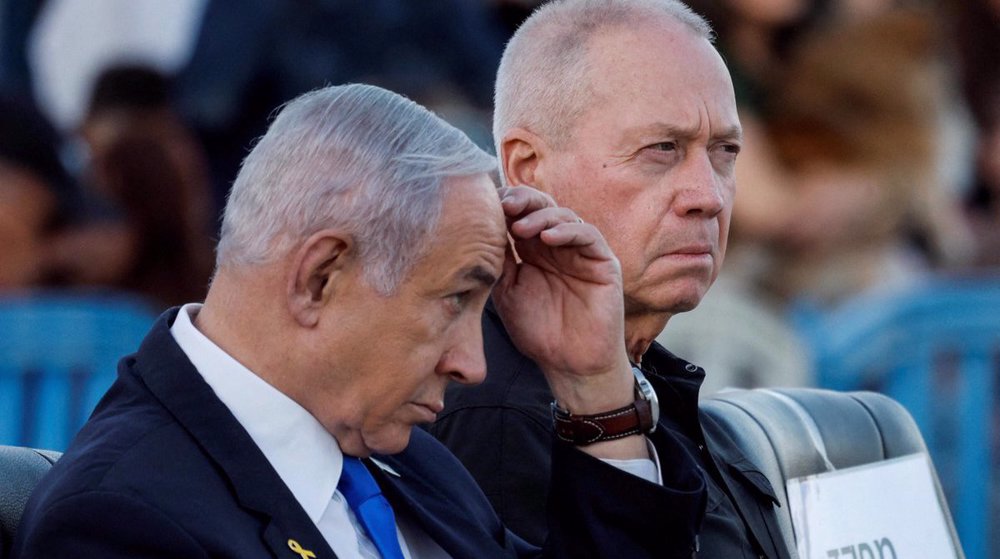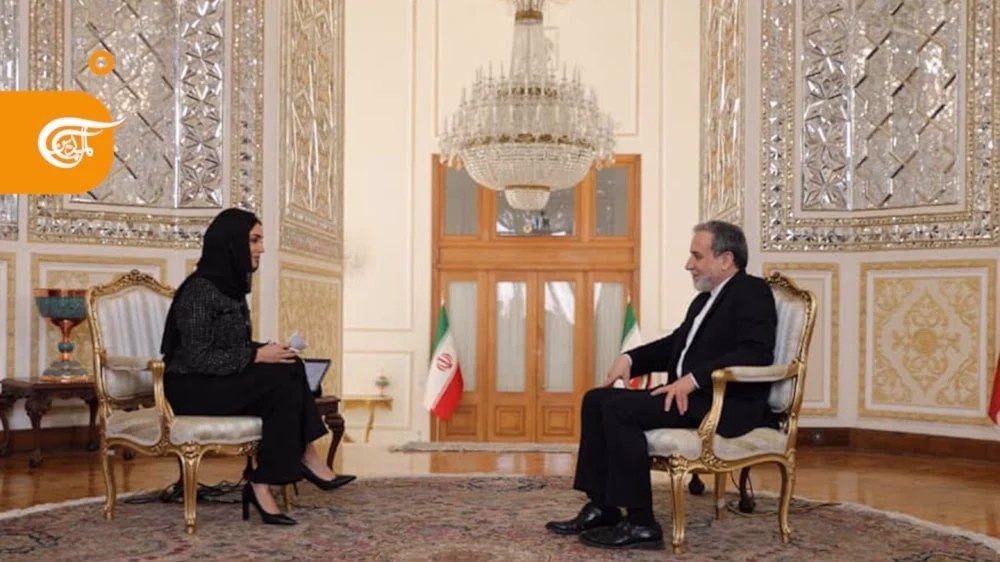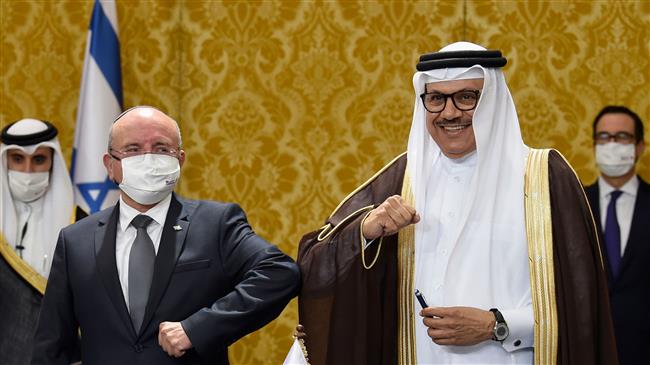Sudan, Egypt, Jordan, UAE, Bahrain normalization is part of new Sykes-Picot Agreement
By Robert Inlakesh
Robert Inlakesh is a journalist, writer, and political analyst, who has lived in and reported from the occupied Palestinian West Bank. He has written for publications such as Mint Press, Mondoweiss, MEMO, and various other outlets. He specializes in the analysis of the Middle East, in particular Palestine-Israel. He also works for Press TV as a European correspondent.
The Sudanese regime is now set to normalize ties with Israel, adding it to the list of normalizers along with Jordan, Egypt, UAE, and Bahrain. Of course, integral to this club of “traitors” as they’ve been dubbed by many, is the Saudi regime, which is reportedly footing the bill for Sudan to allow it to quickly normalize ties with Israel. So is this normalization about “peace” or in fact Western domination, a plot to confront Iran and money?
The so-called “peace” deals struck between Israel and Arab regimes have been manufactured specifically to serve both Western strategic interests and finance. The initial signing of what was called the ‘Abraham Accords’, where the UAE and Bahrain had signed onto normalize ties, can be linked to short and long-term strategic goals in the Middle East.
The short term for Israel and the US was achieving a political victory on behalf of US President Donald Trump and Israeli Premier Benjamin Netanyahu. Netanyahu needed a way to hold off on his promise of a de-jury annexation of the West Bank and Trump needed a win to make himself appear to the US public as having achieved a major political breakthrough in the Middle East.
Also, it is clear that there is a financial and military benefit involved in the so-called peace deals. Bahrain to a lesser extent evidently will allow for tourism and investment into the country, although the monetary gain is not as significant as it is in the case of the UAE. The UAE delegation, which arrived in Ben-Gurion airport this week, announced, alongside Israeli politicians, an agreement to sell Emirati crude, transporting it from the Red Sea to the Mediterranean. Also announced was that Israelis will be permitted to travel to the UAE without having to even obtain a visa, something which is of course not granted to Palestinians.
The pipeline, set to be used for the transport of Emirati crude, was seized illegally by Israel, from Iran, and it was ruled by a Swiss court in 2016 that Israel must pay at least 1 billion in damage to Iran, which they refused to pay. In addition to this, the UAE is now set to obtain some of the most cutting-edge US and Israeli military hardware.
In the case of Bahrain, it has been revealed that a secret Israeli embassy may have existed in the country for over 11 years, indicating again that the deal signed was not a peace deal. In the case of the UAE, it is also clear that Israel has collaborated with it in various countries, including the likes of Libya and Yemen.
The use of a monetary gain incentive for normalization is no new thing, as it may appear, however. The history behind both Egypt and Jordan having signed “peace” agreements with Israel followed a very similar model. Egypt, which normalized ties in 1979, did so with the backing of the full might of the US’s foreign aid program, which donated more in the year on which the agreement was signed to Egypt, than any other country on earth. In fact, the US managed to not only deliver foreign aid to Egypt but also capture it as an asset as the foreign aid money until this day still allows for the US to keep the country in a headlock. In the case of Jordan’s normalization deal, signed in 1994, also came financial incentive, as it did for Egypt during years of former President, Hosni Mubarak, in the form of pipelines and trade.
Now the two main components of this era of normalization deals, are Saudi Arabia and the UAE. It is more than likely that Saudi Arabia, with its control over affairs in Bahrain, used the Bahraini regime as a testing ground to see what would happen before it signed anything and created unwanted problems. Also, Saudi Arabia has just pledged to foot the bill of 335 million to the United States - which was demanded from the US for the deaths of US citizens on Sudanese soil - on behalf of Sudan for its move to normalize ties with Israel.
The United Arab Emirates too has been instrumental in pressuring the Sudanese regime, led currently by interim Prime Minister Abdalla Hamdock, who was installed by the Sovereignty Council, whilst the country is allegedly to transition to democracy. The current affairs of Sudan are heavily influenced by the UAE, so much so that some analysts have accused the UAE of being behind the manufacturing of Sudan-Israel normalization.
Where is normalization heading?
A sharp political mind would look past the official signings of normalization deals and take this all as part of a wider political agenda. When we combine the actions of the Sudanese, Egyptian, Jordanian, Emirati, and Bahraini regimes, putting into consideration that Saudi Arabia and other Persian Gulf Arab regimes are also part of this axis, we can see that this block is acting for a very specific purpose. That purpose is a reshaping of the Middle East, in terms of forming a strong pro-Western axis of undemocratic regimes that aim to completely decimate the Middle East’s resistance to Western Imperialism.
Saudi Arabia, Egypt, Jordan, Bahrain, Sudan, UAE, and others have been for some time servants to the West and have worked militarily, monetarily and through their intelligence apparatus to destroy Arab Independence, at the forefront of this struggle being the Palestinian National Liberation Movement.
Strong economic and military ties, now sealed in “peace agreements”, represent a bowing of Arab Leadership to Western power. The Arab Peace Initiative, that being the idea of Land for Peace (or a two-state solution), has been officially dissolved and with it the functionality of the Arab League.
The Palestine Liberation Organization made the mistake of succumbing to Western power and money, leading them to the situation they find themselves in today, betrayed, without land and having created the Palestinian Authority (PA) to achieve financial success. The PA now sees what happens when you seal a deal with the West and so is scrambling to try and get a better deal, or at least form some sort of national unity in order to fight the ongoing assault on their suddenly re-discovered cause. However, the plan for the Middle East, set up to benefit the regimes around occupied Palestine - if they are to bow before it - was never intended for the Palestinians. The Palestinian Authority was duped by Israel and the United States, ceding their cause for money, thinking that scraps of Palestine would suffice, but Israel has never even considered giving Palestinians their 20%.
Now the main target, to destroy resistance to Western domination in the Middle East, is Iran. Iran, who are not even Arabs, are the only Middle Eastern country which is keeping Arab resistance alive. If it was not for Iran, Yemen, Palestine, Lebanon, Syria, and Iraq would currently be or be on the road to complete servitude of the US Empire.
In order to enact their new Sykes-Picot plan, the US is now using its Arab regime allies to form a front against the resistance, even attempting to destroy it from the inside. The ultimate goal here is the complete occupation of the Middle East via corrupt dictatorships that oppress and steal from their own people, in order to serve the West.
(The views expressed in this article do not necessarily reflect those of Press TV.)
VIDEO | Iran's president urges Pope to help end Israel's onslaught in Gaza
Iran's senior legal official: ICC arrest warrants for Netanyahu ‘great victory'
Nov. 21: ‘Axis of Resistance’ operations against Israeli occupation
VIDEO | Israeli forces storm West Bank’s Jenin again, target civilians
Iran activates advanced centrifuges after IAEA's 'unjust' resolution
VIDEO | Press TV's news headlines
Iran FM: Response to Israeli aggression 'inevitable'
VIDEO | Iran eases the rules for exporting hand-woven carpets
















 This makes it easy to access the Press TV website
This makes it easy to access the Press TV website